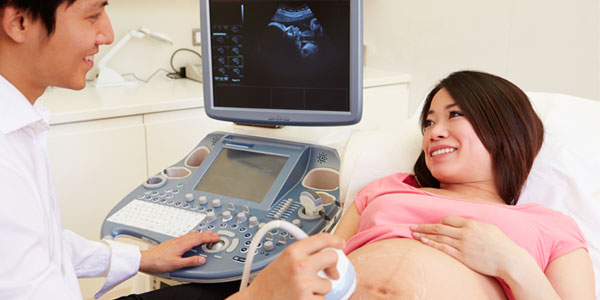More than 15 percent of pregnancies require some specialized maternal care. If this includes your pregnancy, your OB/Gyn may recommend partnering with an obstetrician with specialty expertise to address the unique concerns of high-risk pregnancies.

Get personalized, coordinated care across Northern California through the Sutter network.
View Patient ResourcesMake appointments, message your doctor and more through our patient portal.
Enroll NowAccess award-winning, comprehensive primary and specialty care for your whole family.
View All ServicesOur contributions to medical research and education lead to better healthcare outcomes.
Research at SutterJoin our robust training programs led by nationally known healthcare leaders.
Explore OpportunitiesExplore the ways we provide innovative, compassionate care through our network.
Learn About Sutter HealthShape the future of healthcare and build your career within our diverse teams.
Find Jobs
Get personalized, coordinated care across Northern California through the Sutter network.
View Patient ResourcesMake appointments, message your doctor and more through our patient portal.
Enroll Now
Make appointments, message your doctor and more through our patient portal.
Enroll NowAccess award-winning, comprehensive primary and specialty care for your whole family.
View All ServicesOur contributions to medical research and education lead to better healthcare outcomes.
Research at SutterJoin our robust training programs led by nationally known healthcare leaders.
Explore Opportunities
Join our robust training programs led by nationally known healthcare leaders.
Explore OpportunitiesExplore the ways we provide innovative, compassionate care through our network.
Learn About Sutter HealthShape the future of healthcare and build your career within our diverse teams.
Find Jobs
Shape the future of healthcare and build your career within our diverse teams.
Find JobsMore than 15 percent of pregnancies require some specialized maternal care. If this includes your pregnancy, your OB/Gyn may recommend partnering with an obstetrician with specialty expertise to address the unique concerns of high-risk pregnancies.

The term high-risk pregnancy is generally applied to any pregnancy where there is a higher than normal chance of a condition requiring extra care. Although it can sound scary, most often, having a high-risk pregnancy means only that you will require some extra care and monitoring. In some high-risk pregnancies, however, there is risk to you or your baby and you will need advanced, coordinated care to have the best possible outcome.
The list of factors that can qualify a pregnancy as high-risk is extensive. It may include:
Obstetricians are trained to offer both regular and high-risk pregnancy care. In addition, you may need to meet with a genetic counselor or see a specialist in maternal-fetal medicine. When there is a known issue with a specific problem, your pregnancy care team may also work with specialists in other fields such as endocrinology, cardiology, neurology, radiology or oncology.
In general, high-risk pregnancy means more testing during pregnancy and a higher level of care during labor and delivery. Advanced prenatal diagnostic tests you may need include amniocentesis, chorionic villus sampling, first-trimester nuchal screening, targeted ultrasound evaluation and various antepartum (before birth) tests. Your doctor may also teach you how to monitor your pregnancy at home by knowing the signs of preterm labor and how to track your baby’s movements.
Throughout your pregnancy, your doctor will use information from various tests to make the best possible care recommendations for you. Together, you may need to make some decisions about when you will deliver your baby and what types of interventions you may need to deliver as safely as possible.
Some of the advanced services and programs available for high-risk pregnancies include:
Check-ups, screenings and sick visits for adults and children.
Expertise and advanced technologies in all areas of medicine.
For serious accidents, injuries and conditions that require immediate medical care.
After-hours, weekend and holiday services.
Convenient walk-in care clinics for your non-urgent health needs.